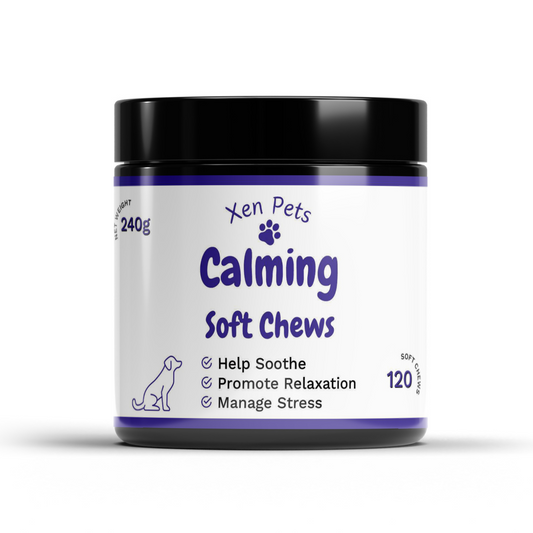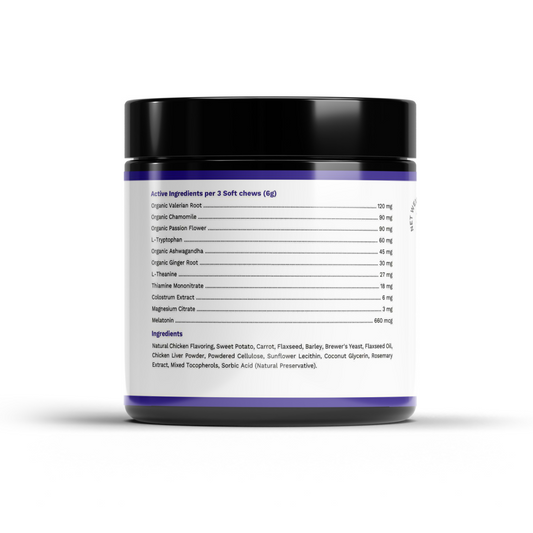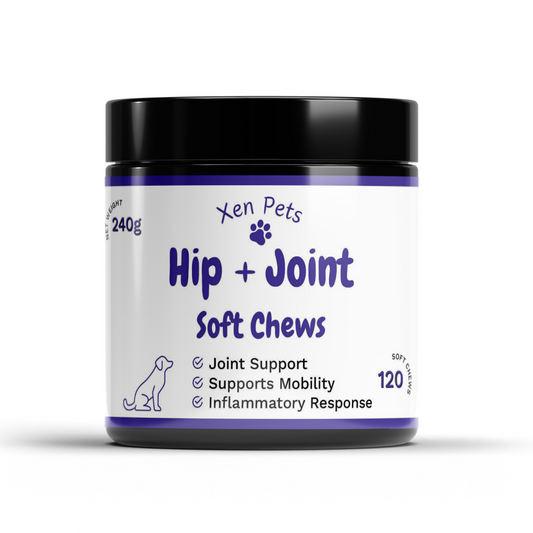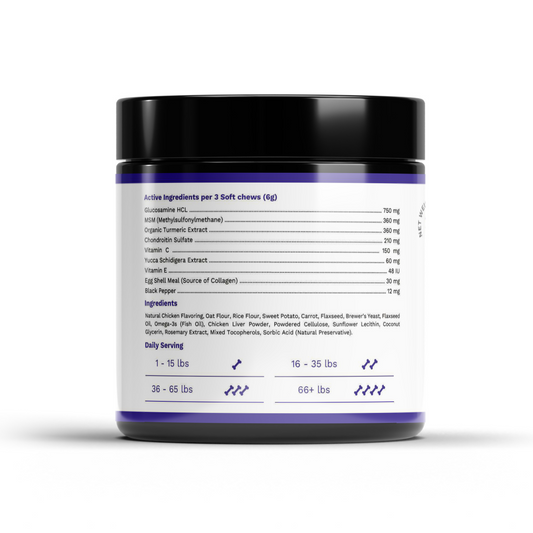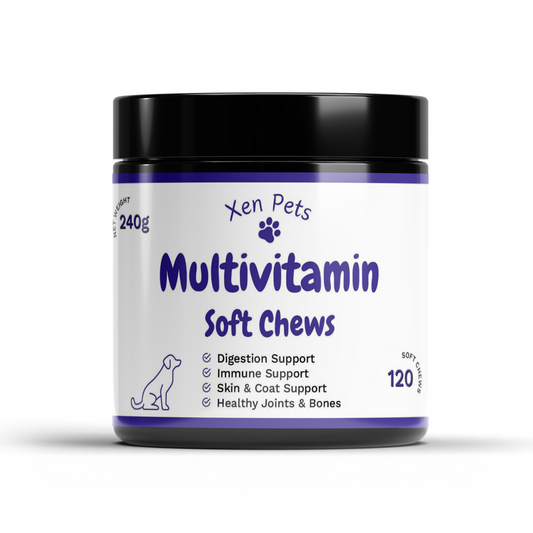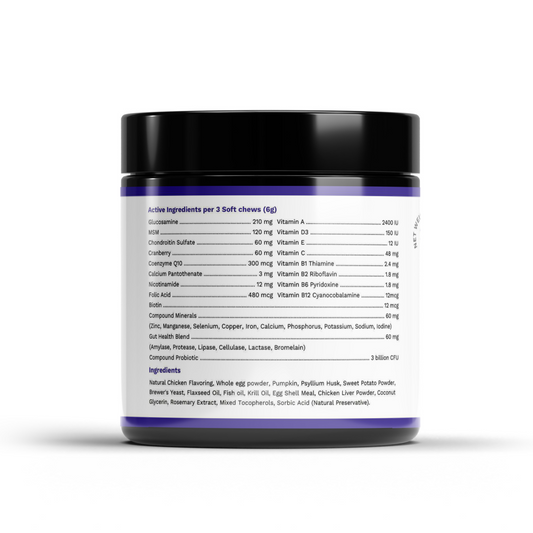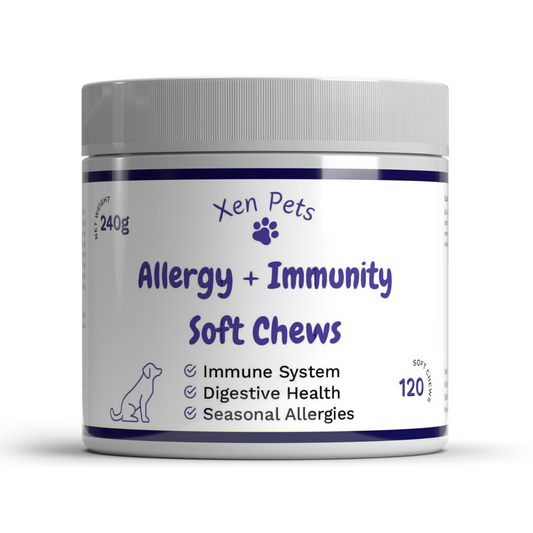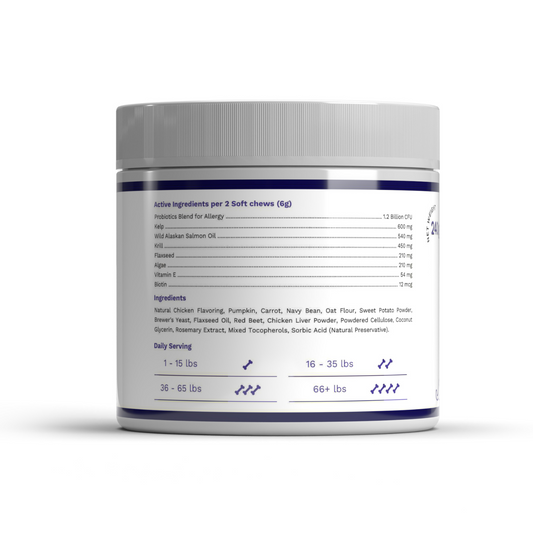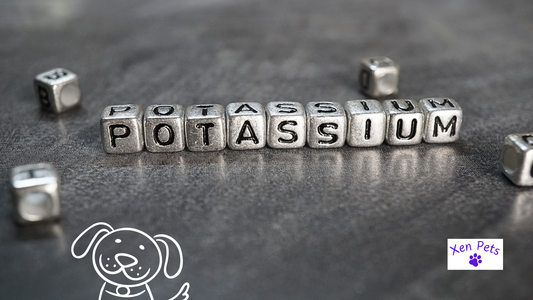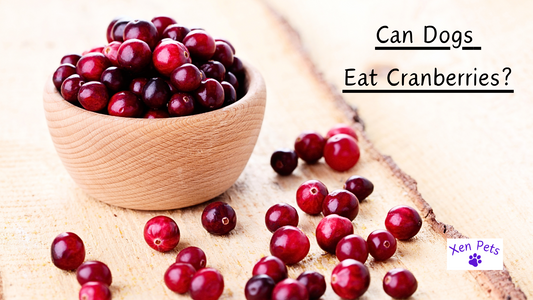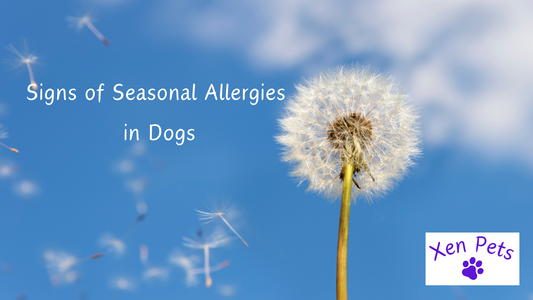Omega 3 and Omega 6 Fatty Acids for Dogs
Tory JohnsonShare
As dog owners, we want our pets to get the best care and nutrition possible. Adding omega fatty acids to their diet is one easy way of doing just that.
Omega fatty acids are essential for maintaining a healthy coat and skin, reducing inflammation, and improving overall heart health in dogs.
Let's take a closer look at what omega fatty acids are and why every dog needs them in order to stay healthy and happy.

What are Omega 3 and Omega 6 essential fatty acids?
Omega 3 and Omega 6 are essential fatty acids for dogs that play a crucial role in maintaining their overall health.
These fatty acids are considered essential because dogs cannot produce them on their own, and therefore need to be obtained through their diet.
Omega 3 fatty acids are commonly found in fish oils and have been shown to support heart health, improve cognitive function, and reduce inflammation.
Omega 6 fatty acids, on the other hand, can be found in vegetable oils and are essential for proper growth and development.
While both Omega 3 and Omega 6 fatty acids are important, it's essential to maintain a balance between the two as an excess of Omega 6 can contribute to inflammation in the body.
Overall, by incorporating fatty acid supplements or foods rich in these essential fatty acids into your dog's diet, you can help support their health and well-being.
Types of Omega 3 fatty acids

- Eicosapentaenoic acid (EPA)
- Alpha-linolenic acid (ALA)
- Docosahexaenoic acid (DHA)
Types of Omega 6 fatty acids

- Dihomo-gamma-linolenic acid (DGLA)
- Gamma linolenic acid (GLA)
- Linoleic acid (LA)
Omega 3 and omega 6 benefits for dogs
A healthy diet that includes Omega-3 and Omega-6 fatty acids can support coat health, promote healthy skin, and provide a whole range of other health benefits.
1. Skin and coat health
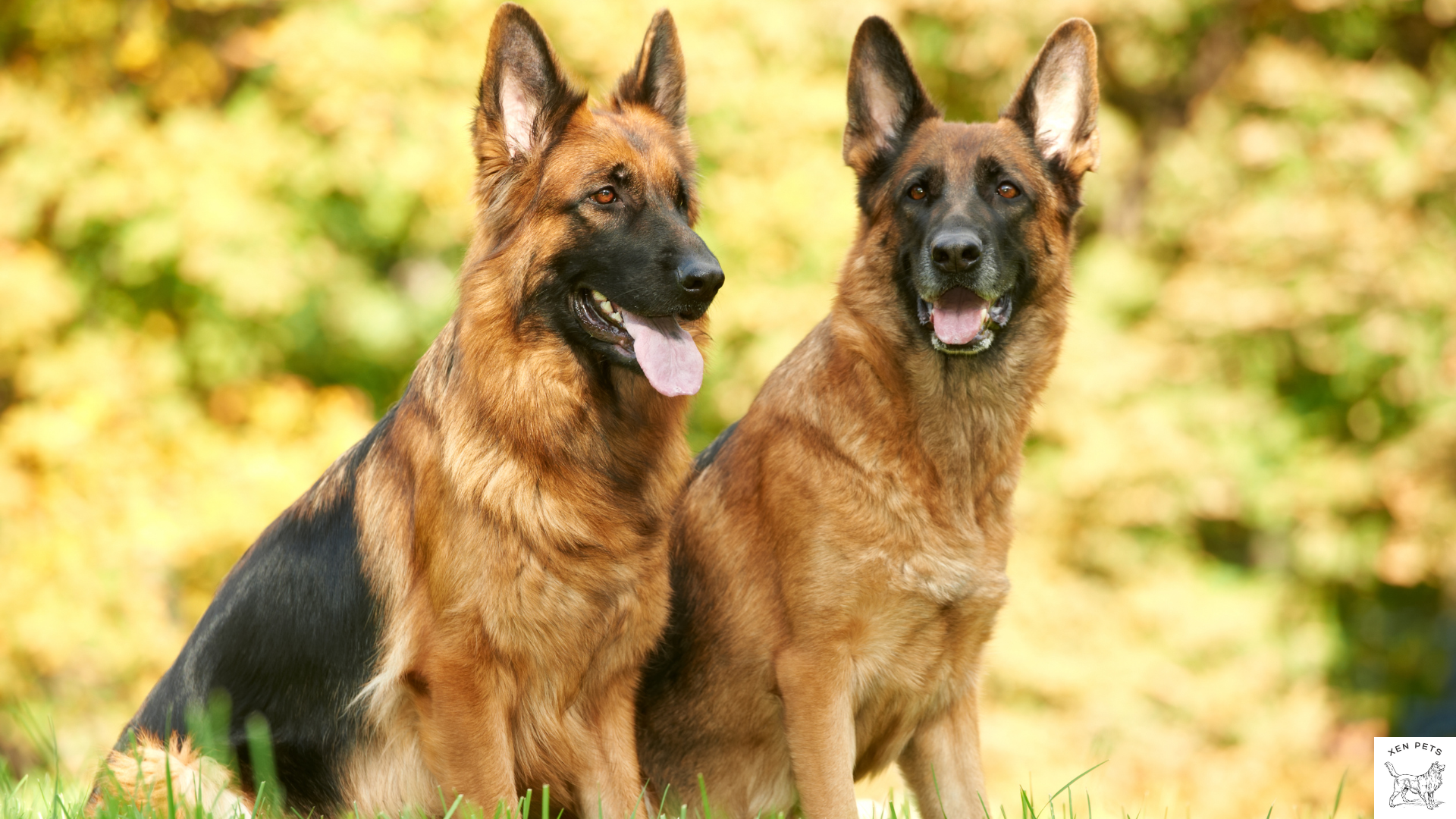
Omega fatty acids are essential components in promoting skin and coat health for dogs.
Dogs with flaky and itchy skin can benefit greatly from these vital fatty acids, as they can help prevent the negative effects of dry skin.
Omega fatty acids work to moisturize the skin, improve its overall health, and reduce inflammation.
These fatty acids can not only work wonders for the appearance of a dog's coat, but they can also prevent skin damage caused by environmental factors such as UV rays and pollution.
2. Joint health
As dogs age, joint pain can become a common issue. This can cause them to be less active, which can be problematic for their overall health and well-being.
However, introducing omega fatty acids into their diet can promote joint health and potentially alleviate discomfort they may be feeling.
Omega-3 and omega-6 fatty acids are known for their anti-inflammatory properties, which can help reduce joint swelling, stiffness, and pain.
3. Heart health
Omega fatty acids can be a valuable addition to your dog's diet, as they have been shown to support heart and cardiac health.
These fatty acids work to improve blood flow and lower blood pressure—all of which can help keep your dog's heart functioning at an optimal level.
Omega 3 and omega 6 foods for dogs
Omega fatty acids are readily available in fish oil supplements but can also be found in a natural diet.

8 Sources of Omega fatty acids for dogs
- Anchovies
- Sardines
- Salmon
- Mackerel
- Tuna
- Herring
- Flaxseed oil
- Soybean oil
The bottom line

Omega fatty acids are essential for canine health and well-being, but it's important to maintain a balance between the two types - Omega 3 and Omega 6.
By incorporating foods rich in these essential fatty acids into your dog's diet, you'll be providing them with an abundance of healthy benefits ranging from reduced inflammation to improved mental clarity.
Not only that, but omega fatty acids can also help support a healthy coat and optimal growth and development.
All in all, adding a fish oil supplement into your dog's everyday routine will certainly make a lasting difference in their overall physical and emotional wellbeing.
To learn more, check out our Nutrition Guides.

